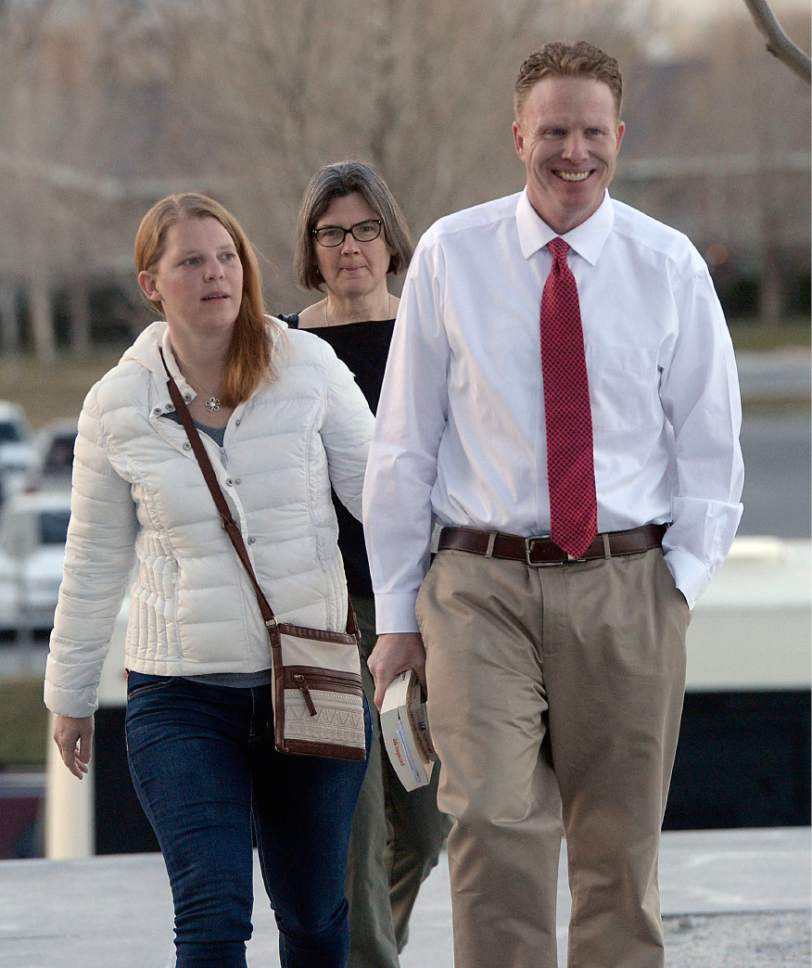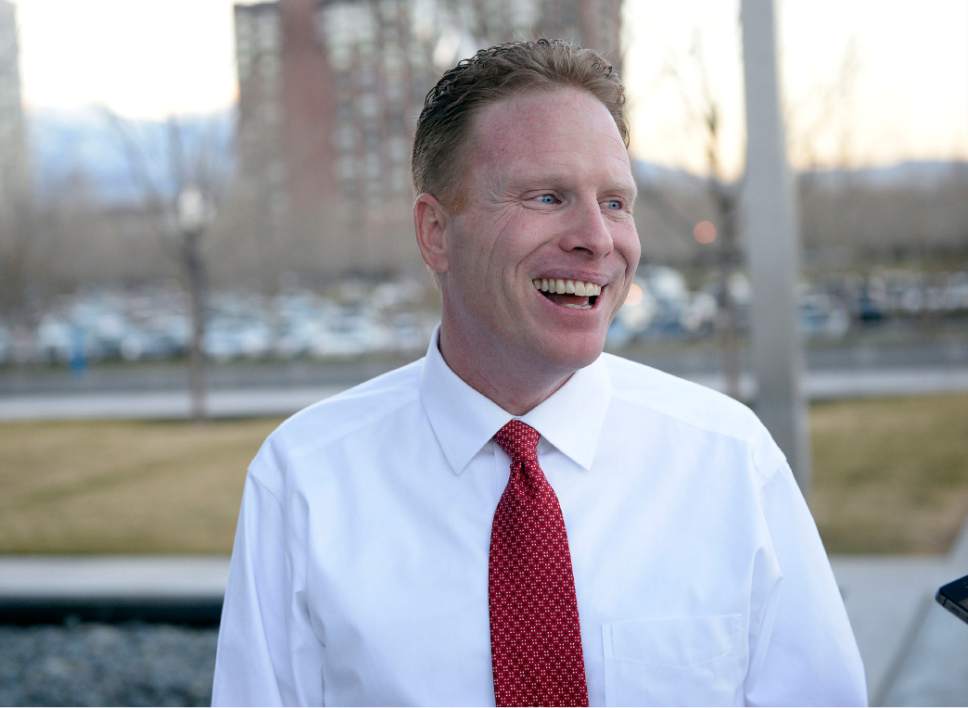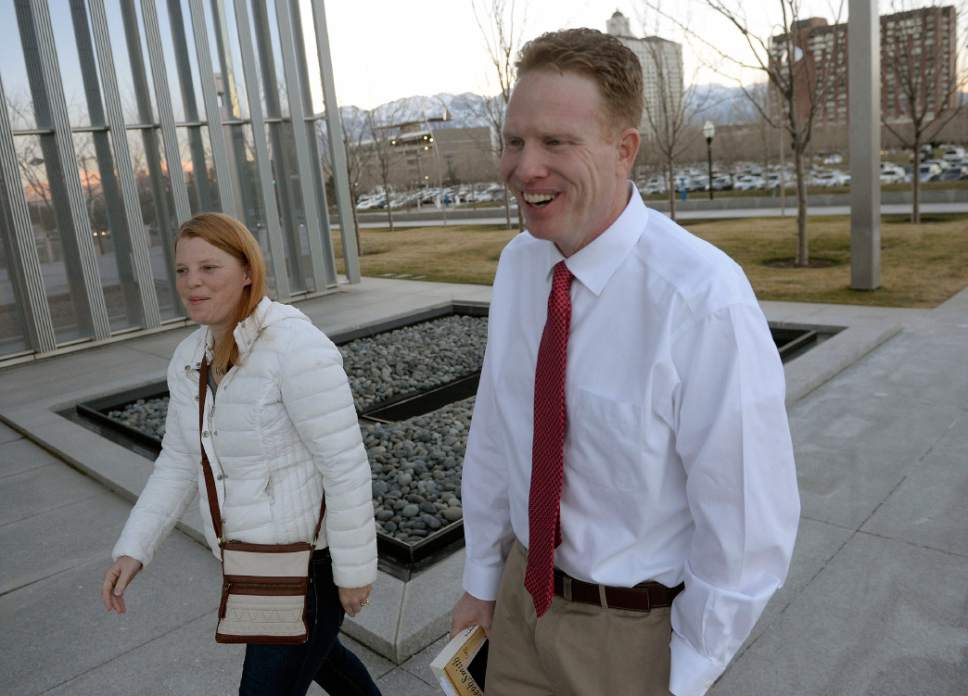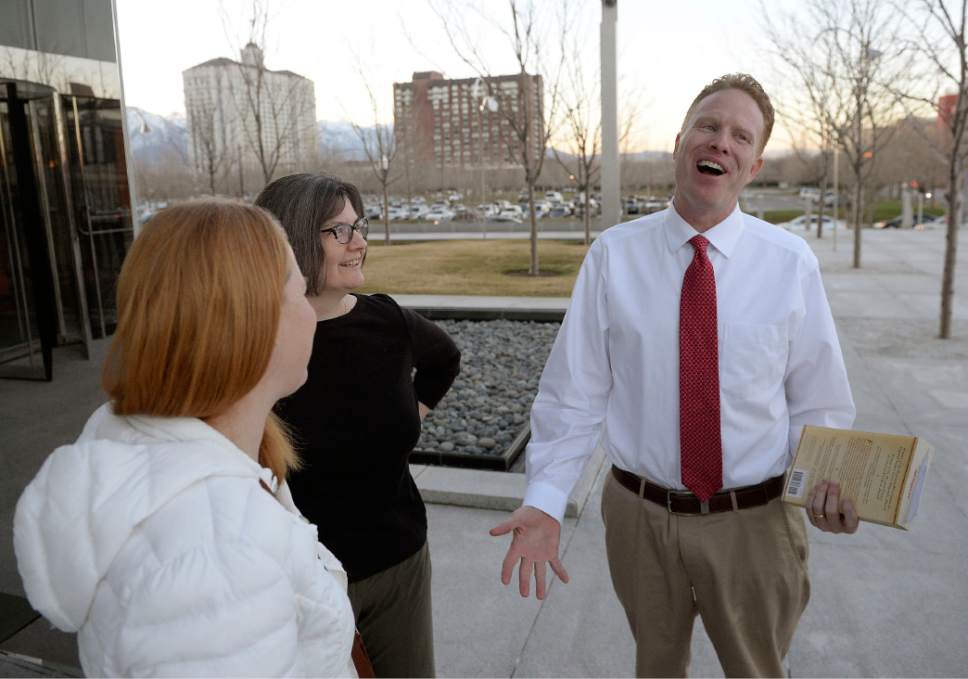This is an archived article that was published on sltrib.com in 2017, and information in the article may be outdated. It is provided only for personal research purposes and may not be reprinted.
A federal judge did not commit serious error or show prejudice against the defendants in the trial of St. George businessman Jeremy Johnson, but if he did those mistakes did not influence the jury, federal prosecutors argue in replying to Johnson's appeal of his 2016 conviction.
In a 197-page response to Johnson's appeal and that of co-defendant Ryan Riddle, prosecutors also say that the pair's convictions on eight counts each of making false statements to a bank should stand even if the bank was never provided with that false information.
Johnson is now serving 11 years at a low-security prison in Arizona and Riddle is at different facility in that state serving a five-year term. Attorneys for both have appealed the convictions to the 10th Circuit Court of Appeals in Denver.
Johnson was the owner of a company called I Works — and Riddle was general manager for a time — that sold online products such as how to get government grants for personal expenses or how to make money using Google AdWords. Because I Works' bank accounts were shutdown because of a large number of credit card chargebacks, the criminal charges alleged Johnson, Riddle and others cooked up a scheme to obtain new bank accounts by creating a series of companies but hiding their true ownership and then filing account applications.
Johnson faced 86 charges but a jury convicted him and Riddle on only eight counts each of providing false information to Wells Fargo to obtain new accounts.
Both have argued that U.S. District Judge David Nuffer made numerous errors in their six-week trial, including displaying prejudice toward the defendants and defense attorney Marcus Mumford and saying that they could appeal his rulings, suggesting the case would end in a conviction.
But Assistant U.S. Attorney Jeannette Swent told the 10th Circuit justices that Nuffer properly ruled on numerous issues and that the alleged displays of prejudice against the defendants were "minor incidents during nearly six weeks of evidentiary rulings."
"The district court mentioned the possibility of an appeal once during nearly six weeks of trial," Swent wrote, arguing the incidents were part of the normal administration of a trial and she pointed out that jurors found the two not guilty on dozens of other charges.
"The jurors' decision to convict on some counts and acquit on others shows that they were made of sterner stuff and reached a fair judgment independent of allegedly improper comments regarding appeal," the brief says.
Karra Porter, one of Johnson's attorneys, said several jurors cited Nuffer's remark that defendants' could appeal issues that sprang up in the trial.
"It's very bothersome that the jurors were specifically repeating the judge's comment about the defendants' ability to appeal when [the jurors] couldn't decide on an issue," Porter said.
Swent also argued that while Wells Fargo did not receive the account applications — which were processed and approved by a third-party agent — Johnson and Riddle made false statements on them with the intent of defrauding the bank.
Swent also argued that the pair had opportunities during the trial, in which they represented themselves, to question bank employees about whether the allegedly false information was even relevant to the approval process for new accounts. Mumford represented a third defendants, Scott Leavitt, whom the jury acquitted on all charges.
Swent also sought to dismiss or downplay arguments that a court-appointed attorney who represented Johnson for a time before the trial had a conflict of interest that was not properly disclosed; that emails that included communication with attorneys were legally seized and processed by federal agents; that Nuffer was justified in excluding a defense expert from testifying; and that neither prosecutors nor the judge erred in calculating the losses that were incurred as a result of Johnson and Riddle's actions.









